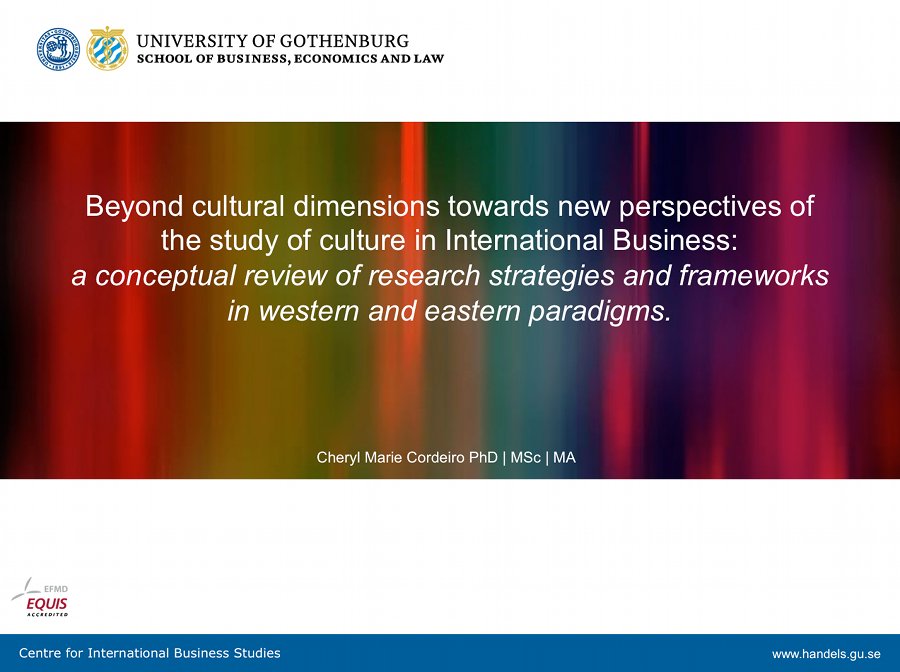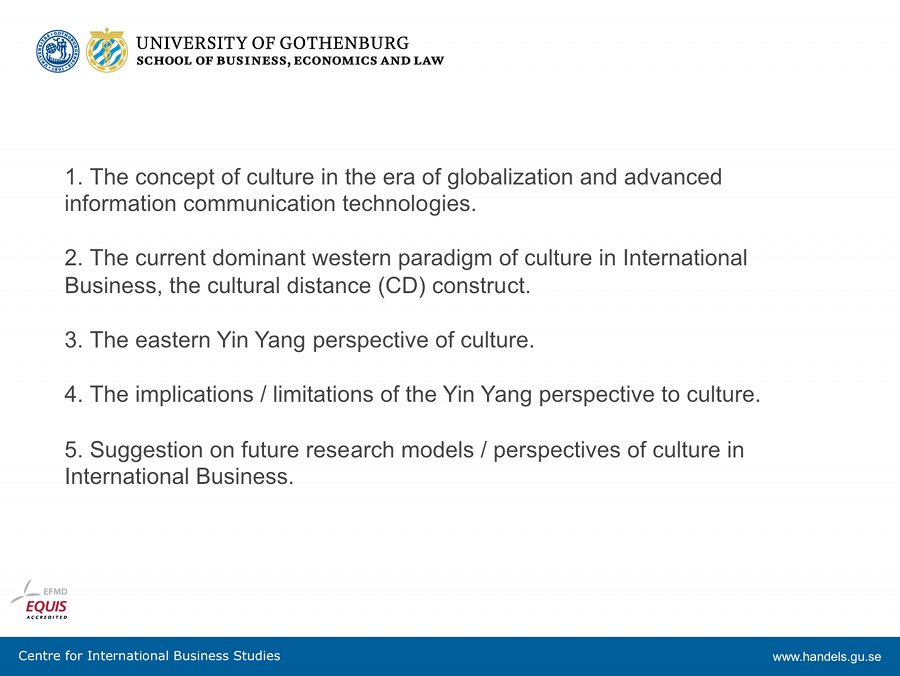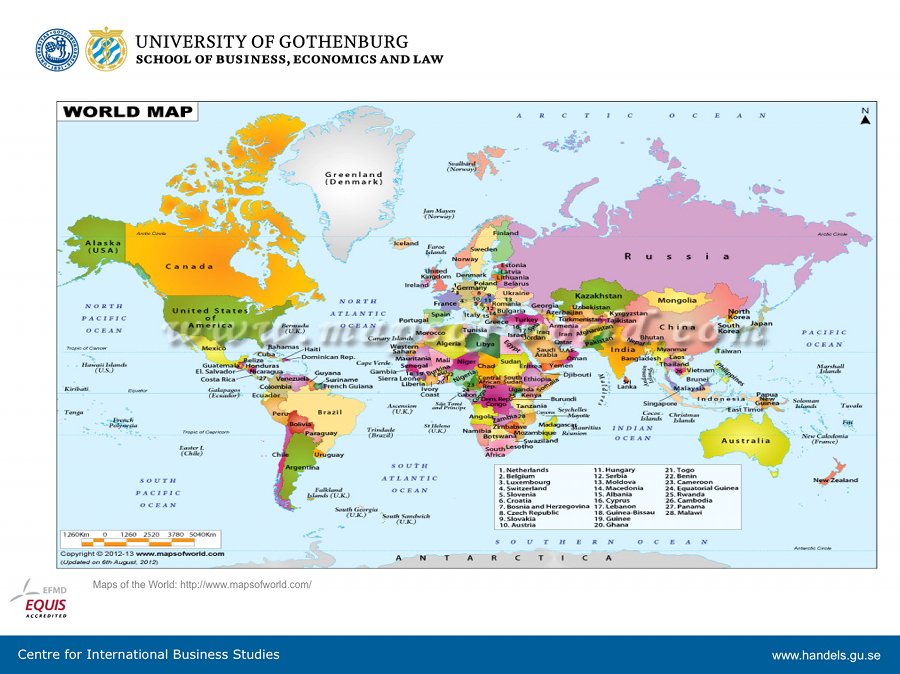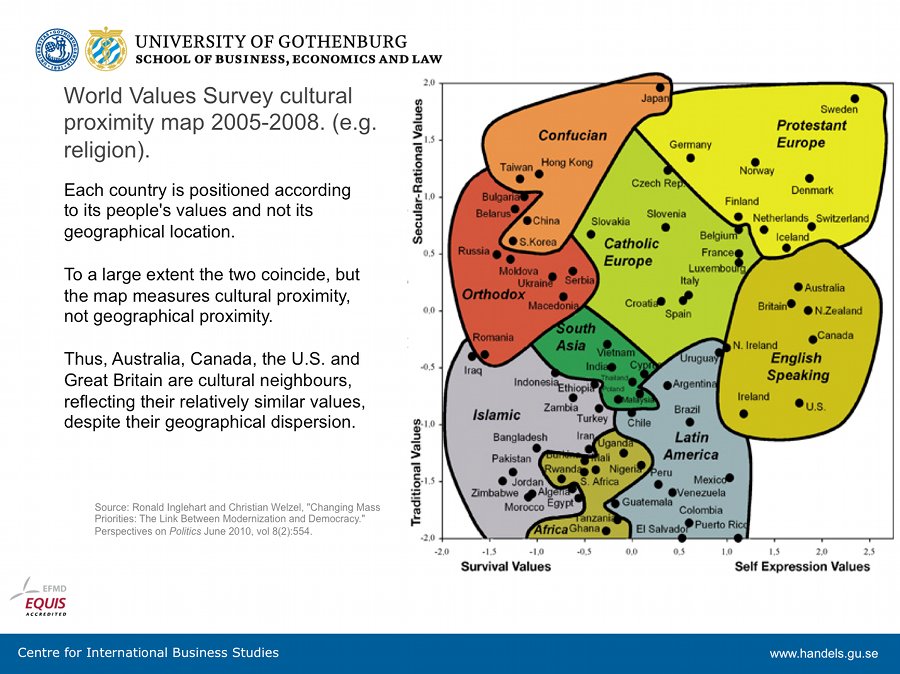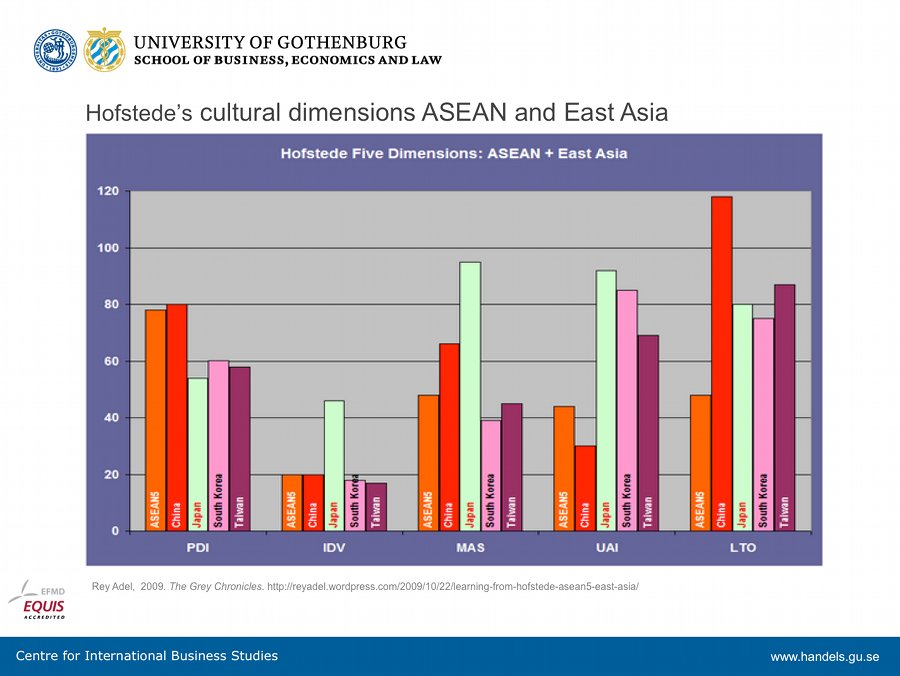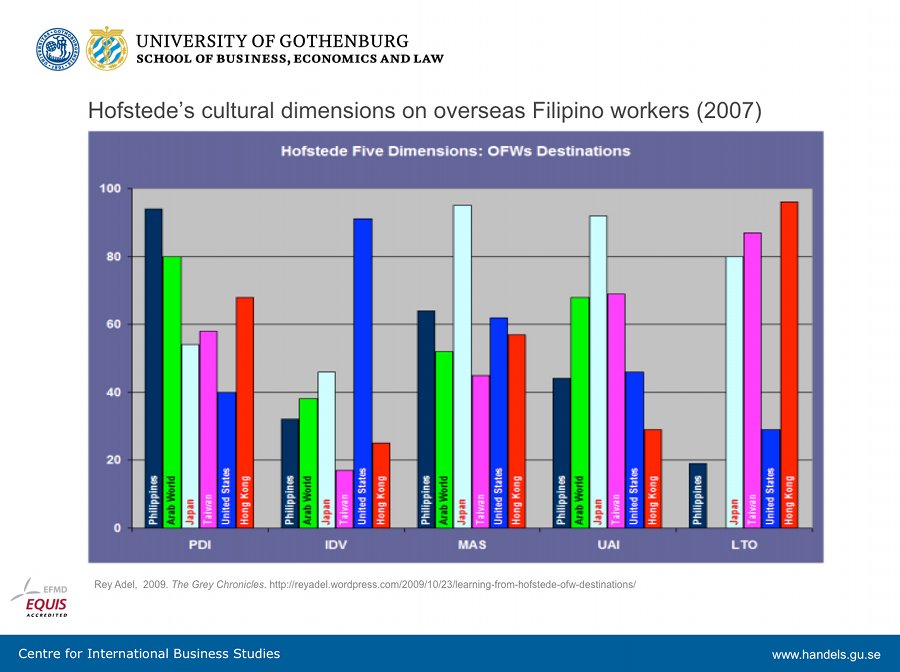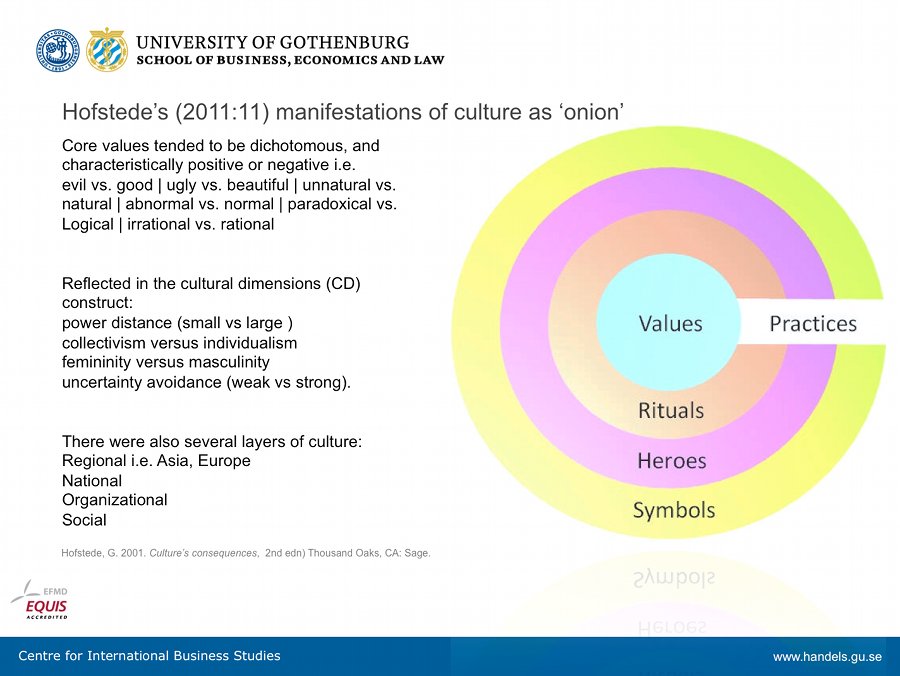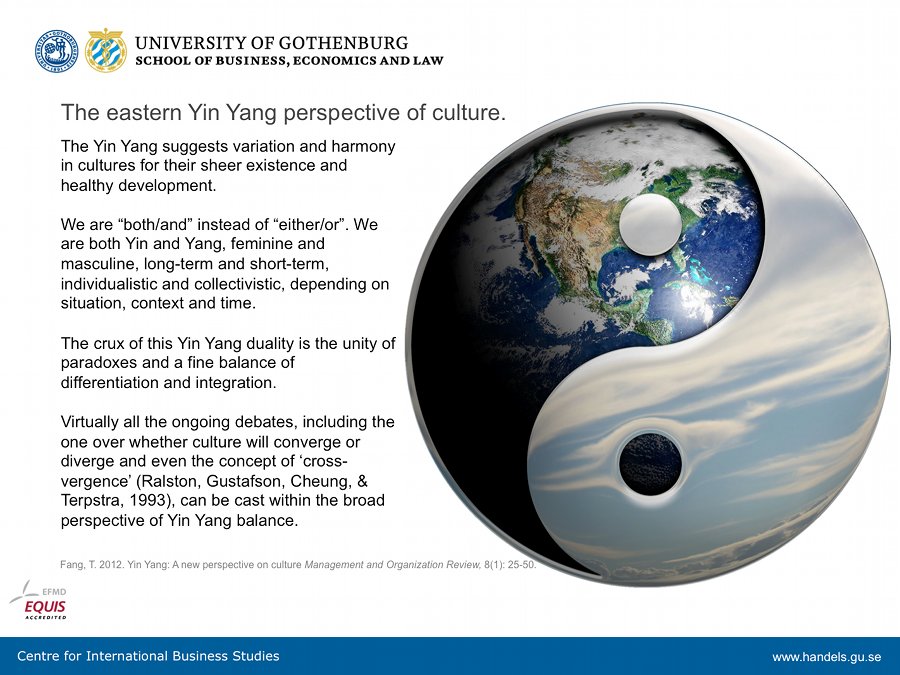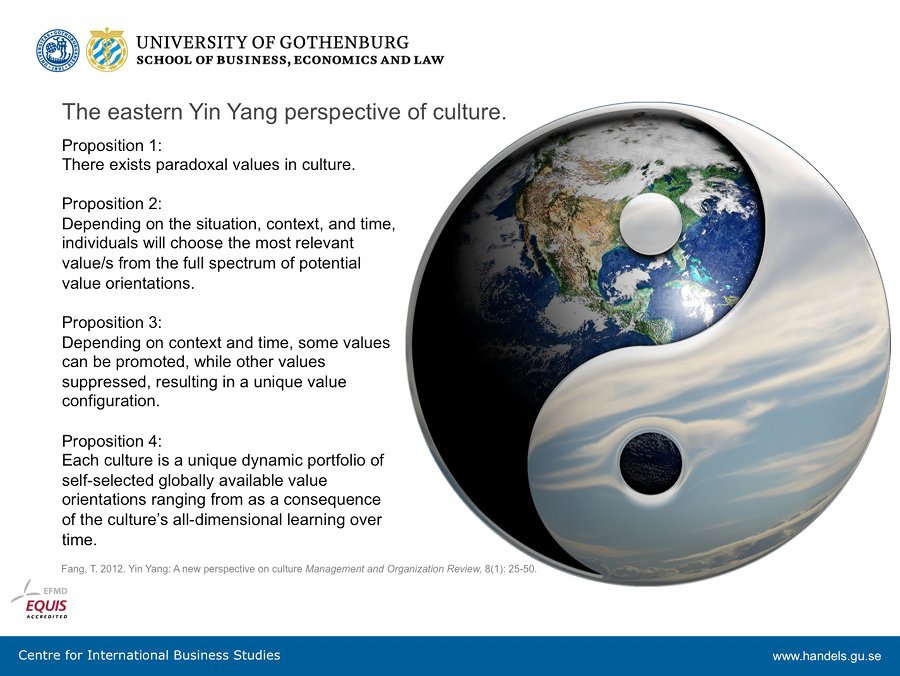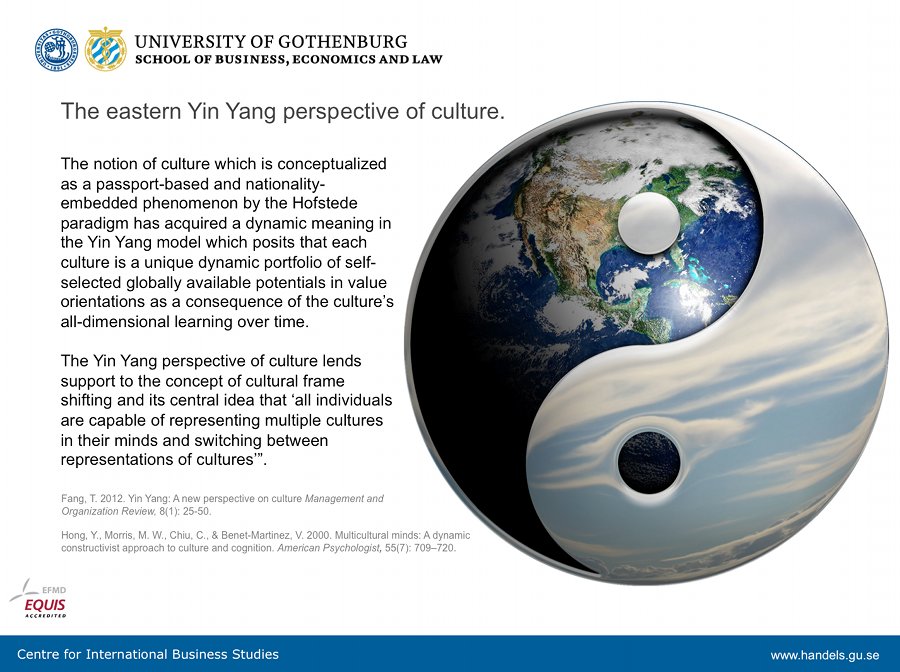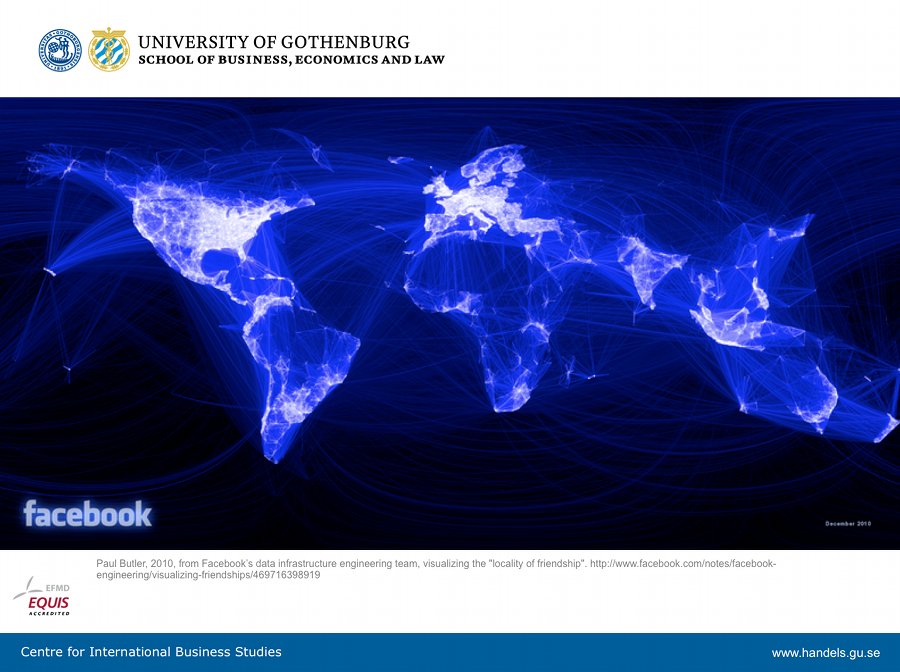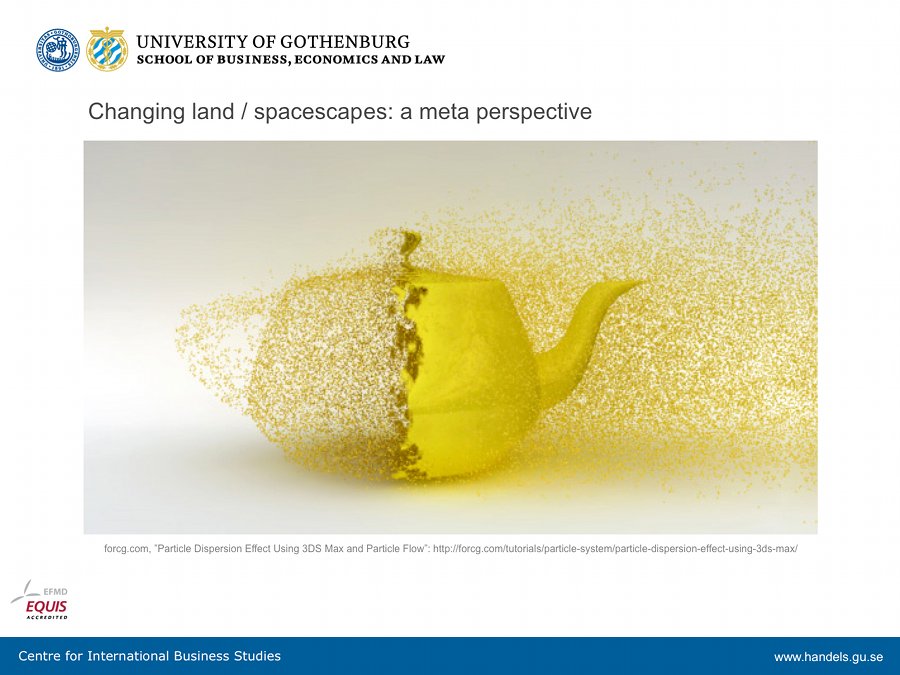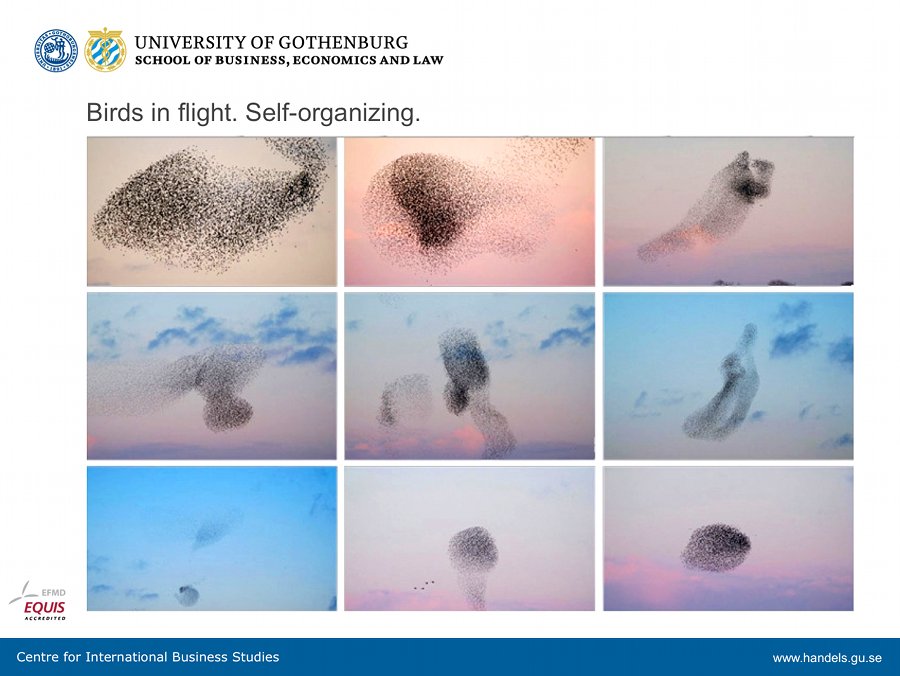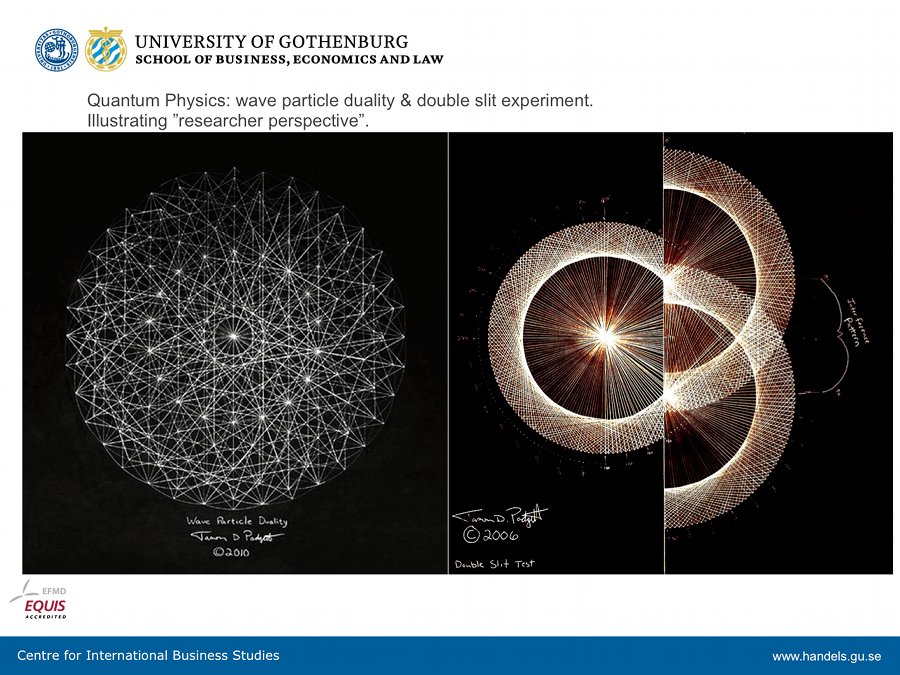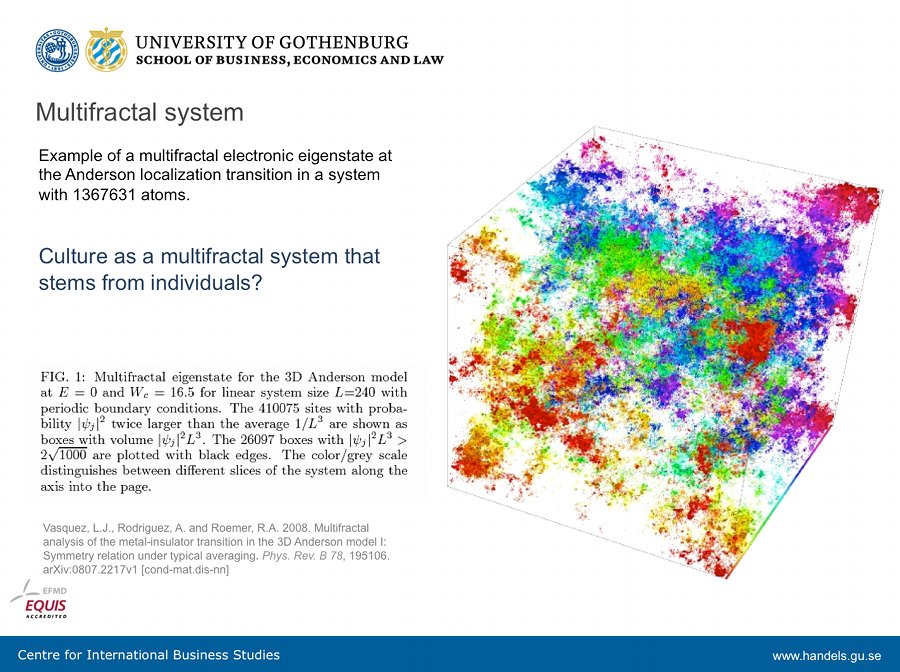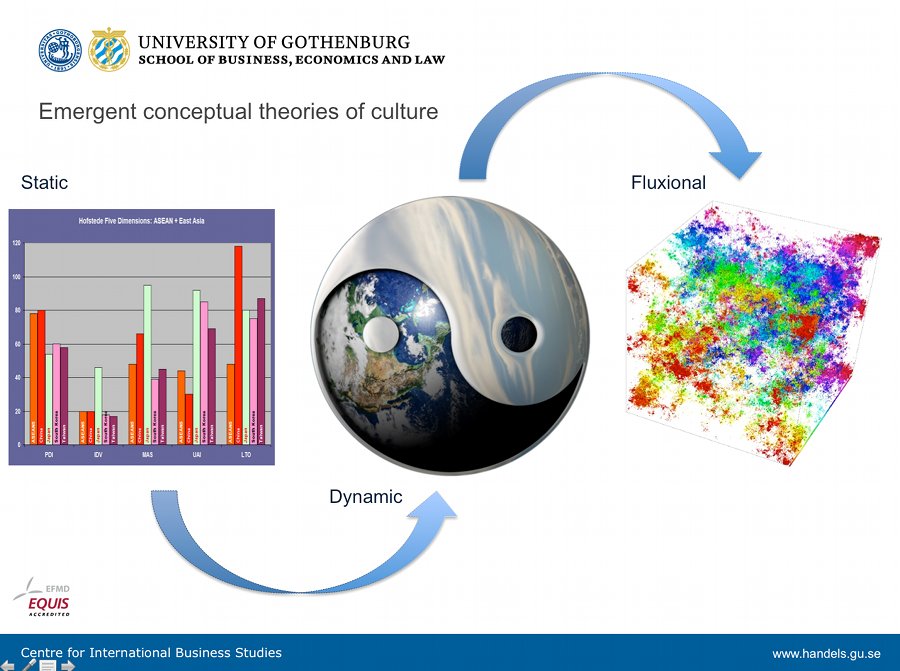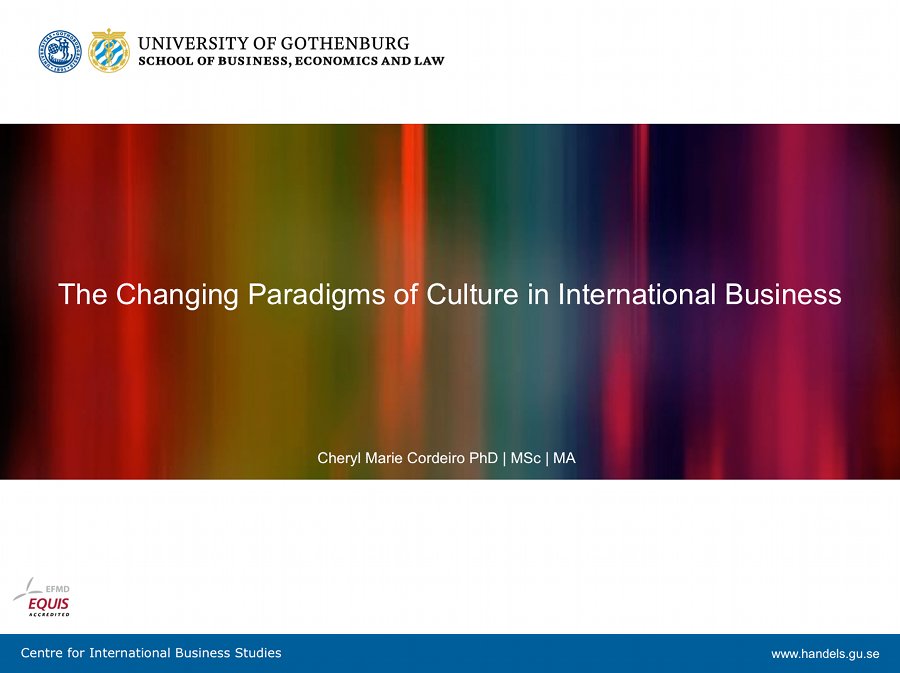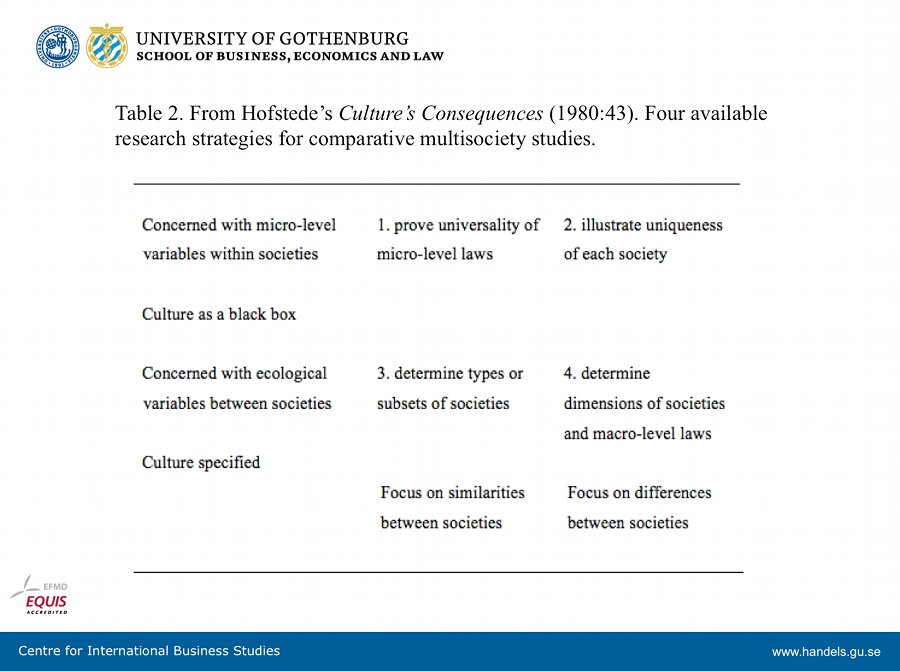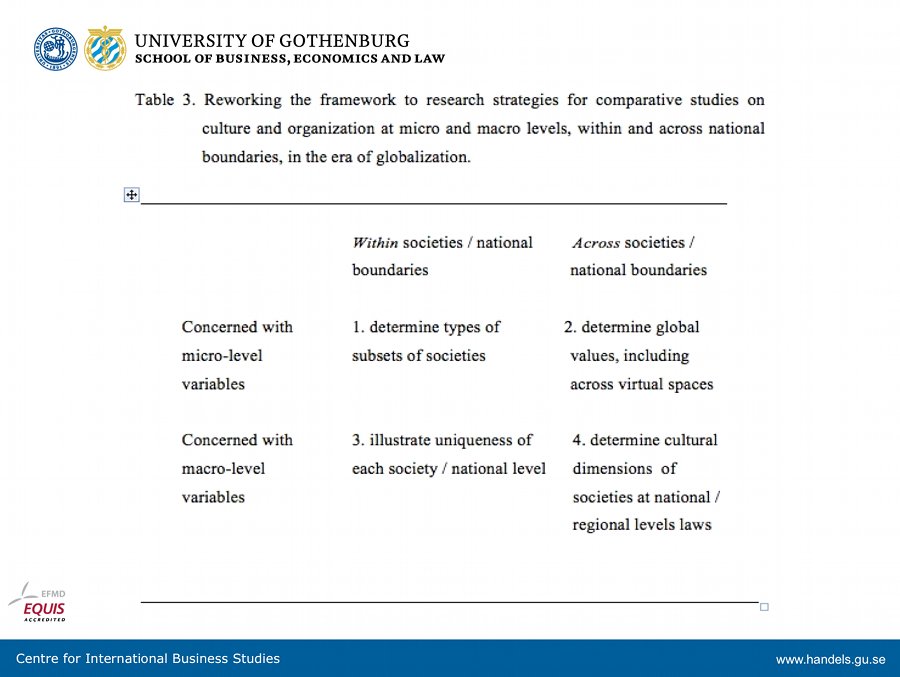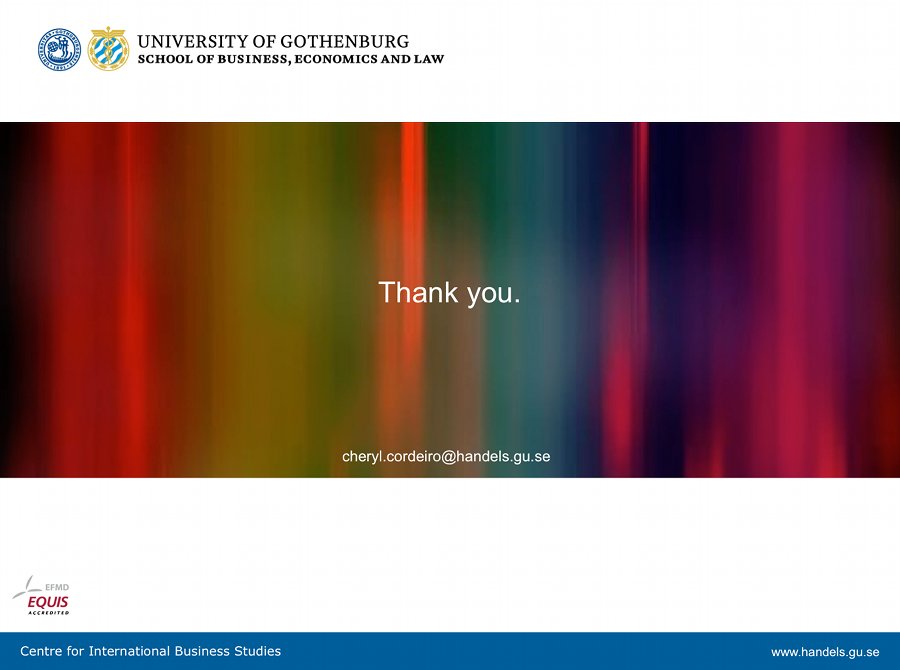The 29th Euro-Asia Management Studies Association (EAMSA) Annual Conference. 31 Oct-3 Nov. 2012. Singapore.
Beyond cultural dimensions, towards new perspectives of the study of culture in International Business: a conceptual review of research strategies and frameworks in western and eastern paradigms.
Whether belonging to the “western” cultural dimensions paradigm or the “eastern” relativistic perspective, a review of culture studies within the field of International Business indicate that the concept of culture continues to be defined within national and geographic boundaries. Yet global processes and advancing information communication technologies put pressure on the need to revisit culture constructs too strictly bounded by physical geography.
This is not to say that physical geography no longer matters, but what is needed is a theoretical perspective to account for culture unbounded by the physicalities of a local spacetime. Rather, spacetime in itself is an interwoven continuum, more fluid than physical geography and national boundaries.
As research strategies set the foundation to any framework of analysis in studies, a distinction between “frameworks” and “research strategies” was made in the conceptual paper presented at EAMSA 2012.
It aims at a new perspective – to bring the concepts of physics (wave particle duality / observer interference; diffusion / dispersion of particles and equilibrium) into conceptualising culture in IB. This perspective can potentially account for cultures in internet virtual spaces, and for micro eco-systems of organisational culture in multinational corporations.
The purpose is to give future research on culture in IB a theoretical perspective and framework from which to launch new investigations. It is a set of tools in addressing the interaction of the values of highly mobile individuals as they move in and out of different work groups. How they interact with each other based on their different cultural backgrounds and how they identify themselves with the different social institutions to which they belong.
Keywords: international business, cultural dimensions, theoretical physics, wave-particle duality, observer interference, uncertainty principle, global processes, multipolar world
